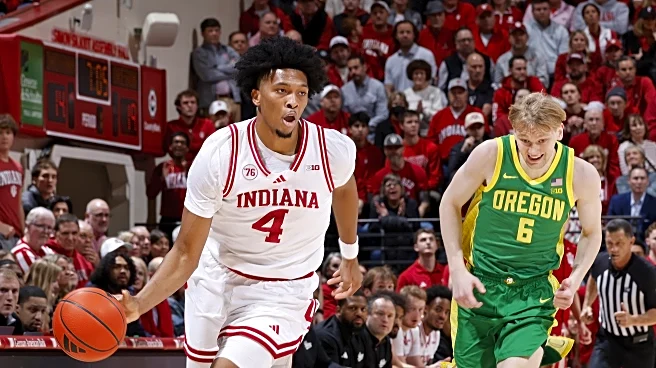What's Happening?
McDonald's USA has announced its largest-ever investment in regenerative agriculture through a partnership with the National Fish and Wildlife Foundation (NFWF). The initiative, named the Grassland Resilience and Conservation Initiative, aims to invest over $200 million in the next seven years to promote regenerative grazing practices, habitat restoration, and conservation efforts across cattle ranches in up to 38 states. This effort is supported by the U.S. Department of Agriculture's Natural Resources Conservation Service and key McDonald's suppliers, including Cargill and The Coca-Cola Company. The initiative will provide ranchers with tools and resources to improve wildlife habitats, conserve water, and enhance soil health, while also offering economic incentives. The NFWF will manage conservation funding and award competitive grants to organizations assisting ranchers in adopting these practices.
Why It's Important?
This investment by McDonald's is significant as it demonstrates a commitment to sustainable agriculture and responsible beef sourcing, which is crucial for the long-term vitality of food systems. By promoting regenerative agriculture, McDonald's aims to enhance the resilience of its U.S. supply chain, ensuring better environmental stewardship and economic returns for ranchers. The initiative highlights the potential for collaboration between public and private sectors to address ecological and economic challenges. It also underscores the importance of sustainable practices in maintaining the productivity of grasslands and supporting rural communities across the United States.
What's Next?
The first round of competitive grant-making under the initiative is expected to culminate in the announcement of awards in January 2026. NFWF will continue to collaborate with conservation partners to identify impactful projects that benefit wildlife populations and enhance the productivity of U.S. ranch lands. McDonald's USA will monitor and quantify improvements in soil health through independent assessments by Kateri and Carbon Yield. The ongoing investment and collaboration are expected to drive further advancements in regenerative agriculture and conservation practices.
Beyond the Headlines
The initiative could lead to broader adoption of regenerative agriculture practices, influencing other companies and industries to invest in sustainable food systems. It may also contribute to a shift in consumer expectations regarding environmental responsibility in food sourcing. The collaboration between McDonald's and conservation organizations highlights the ethical dimension of corporate responsibility in safeguarding natural resources while meeting consumer demands.










